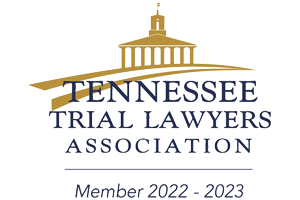The TN Professional Disciplinary Process
The administrative disciplinary procedure can be daunting for a professional facing board discipline for the first time. Clients find themselves in an extremely stressful situation as they attempt to navigate a process that can have a huge impact, both career wise and financially, on their lives. Most professionals have never been subject to discipline before their current situation, and thus do not know what to expect. Understanding the process and what is likely to occur during each stage will make you less afraid of an uncertain outcome.
The Investigation
Investigations may be initiated by various means:
- A complaint may be made against the license holder by an individual.
- An entity may forward derogatory information to the Board.
- An entry of a malpractice payment or criminal conviction may be entered into a database that is monitored by the Board.
- A license holder may self-report.
Once an initial report is made, the board will assign the complaint a case number and an investigator. The investigator should notify the subject of the complaint that they are under investigation for an alleged infraction and specify the facts that constitute this alleged infraction. The investigator will normally send a letter regarding the complaint to the license holder which includes the rights of the subject under investigation, the right of the subject to consult with counsel, the right for due process-notice and an opportunity to be heard. This initial investigation letter will often give the subject of the investigation a deadline to submit any information in response to the investigation.
The recipient of these letters should take the matter seriously and carefully review the information provided. This is a good opportunity for the subject to contact an attorney in order to collaborate and explore options.
The subject has a right to be represented by an attorney, which allows the subject to have an attorney present during interviews with the investigator. An attorney may help by preparing the subject for the interview and suggesting specific areas of focus. The subject of the interview may also submit a written statement to the investigator that may be used during the investigation process.
At the conclusion of the investigation phase, one of two events will occur:
- The investigator will complete an internal office memorandum and recommend certain punishment, whereby the case will then move to an Assistant Attorney General (“AAG”) for the adjudication phase.
- The investigator will conclude no violation occurred and favorably close the investigation. If the investigation is closed favorably, the subject of the investigation will be notified of this result in writing.
The Settlement Offer
During the adjudication phase, the AAG assigned to the case will draft and send an offer to resolve the case with the subject of the investigation. These offers often require the subject to agree to stipulations of fact and submit to discipline on his/her license. In our experience, the AAG may be willing to negotiate the terms offered to a certain extent. If the offer is revocation of license, the AAG is not likely to allow a lower sanction. Terms such as the amount of civil penalty accessed may be negotiated. If the subject of the investigation does not agree to the settlement offer, then the case will proceed to a contested case hearing.
The Contested Case Hearing
The contested case hearing is similar to a trial. The rules and regulations that apply may be located on the website of the specific board. Tennessee law establishes uniform rules of procedure for hearing contested cases before state administrative agencies.
Some of the more important rules include:
- The definition of burden of proof, which is preponderance of the evidence;
- Notice of hearing served upon the party affected 30 days prior to the hearing date;
- The right to representation by an attorney, allowances of subpoenas for witnesses, an order of proceedings, petitions for reconsideration, and filing of final orders.
In short, a contested case hearing proceeds with an introduction by the administrative judge and the parties. After introductions, witnesses are sworn in and any preliminary matters are dispensed with. Both parties are allowed opening statements. The moving party calls witnesses that both sides and the agency are allowed to question.
After all witness testimony is completed, the parties submit closing arguments.The administrative judge then turns proceedings over to the chair of the agency for deliberation and a decision. The agency deliberates in public and reaches a decision which is communicated to the parties, or takes the case under advisement and schedules public deliberations to be completed later.
The Appeal
Agency decisions may be appealed to the Court. Proceedings for review are instituted by filing a petition for review in the Chancery Court of Davidson Court, and must be filed within sixty (60) days after the entry of the agency’s final order.
The review shall be conducted by the court without a jury and shall be confined to the record. In cases of alleged irregularities in procedure before the agency, not shown in the record, proof may be taken in the court.
The court may affirm the decision of the agency or remand the case for further proceedings. The court may reverse or modify the decision if the rights of the petitioner have been prejudiced because the administrative findings, inferences, conclusions or decisions are
- In violation of constitutional or statutory provisions;
- In excess of the statutory authority of the agency;
- Made upon unlawful procedure;
- Arbitrary or capricious or characterized by abuse of discretion or clearly unwarranted exercise of discretion; or
- Unsupported by evidence that is both substantial and material in the light of the entire record. In determining the substantiality of evidence, the court shall take into account whatever in the record fairly detracts from its weight, but the court shall not substitute its judgment for that of the agency as to the weight of the evidence on questions of fact.”[1]
In Summation
Numerous professionals in Tennessee are regulated by state created boards.Their license is subject to conditions or discipline imposed by these boards. Tennessee law governs administrative procedures that apply. Professional licensing disputes go through an investigation phase. After investigation, a settlement offer is usually proposed to the licensee. If settlement does not occur, then a contested case hearing is the next step. If the licensee does not agree with the decision from the contested case hearing, then that individual may seek judicial review.
If you received notice that a complaint was filed against you and need assistance, call Cole Law at 615-490-6020 to schedule a consultation with one of our experienced professional defense attorneys serving the Nashville area.















